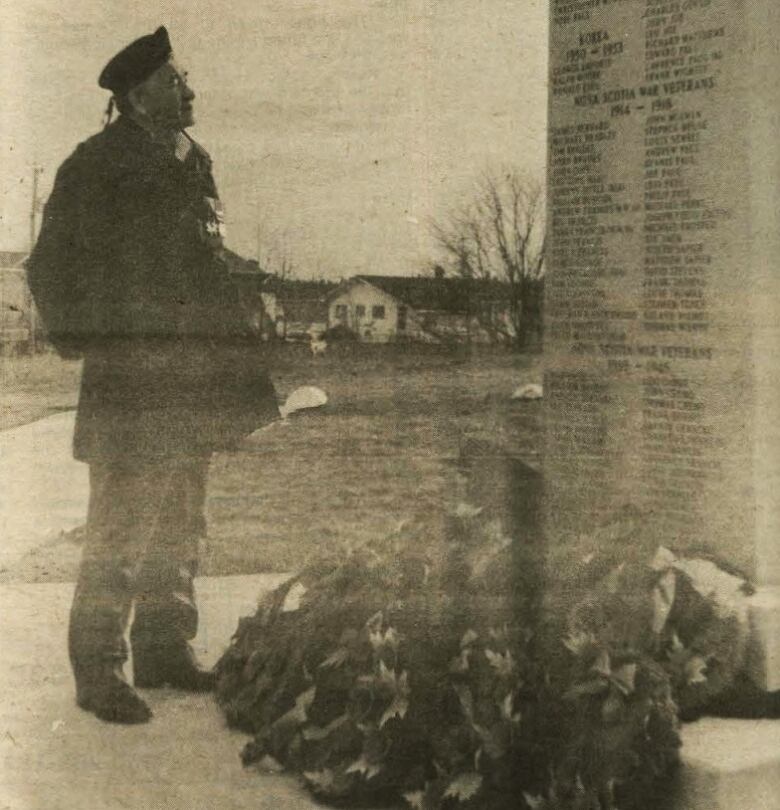Listen to a Membertou linguist read In Flanders Fields in Mi'kmaq
Bernie Francis wanted his community to recognize the contribution of its Mi'kmaq soldiers, veterans
There's a familiar cadence to his voice as Bernie Francis stands in the shadow of the cenotaph, the Mi'kmaq poem flowing from his lips.
It's one he's translated roughly six times now and he'll deliver In Flanders Fields again at Membertou's annual Remembrance Day supper Saturday night.
Each time, the linguist says, he gets a little closer to the souls buried in the words. The words that schoolchildren mouth at assemblies each November. The lineswritten by bereaved Canadian physician and soldier John McCrae after burying his student and friend.
"You have umpteen ways to say something in the Mi'kmaq language," Francis says. "So I think I just became a little bit more conscious about what the author was trying to say, not actually translating it in the exact way that it was written but the metaphor."

Francis thinks of his uncle when he reads McCrae's words and sits with their meaning. He left to fight in the Second World War at 16.
"Because of his great eyesight and great hearing he was chosen to be a sniper," Francis says. "But the suffering that he went through after the war was miserable. He drank a lot, he wanted to fight a lot, he was just a very, very tough guy to be with but at that point that's because PTSD was not known."
While he says his uncle never talked of feeling excluded from other soldiers because he's Indigenous, Francis first noticed in the '70s that neither his uncle nor other Membertou veterans marched alongside their brothers-in-arms at ceremonies in Cape Breton.

So he petitioned the band council to start its own tradition. The annual ceremonies and suppers began.
In 1985, Membertouunveiled a cenotaph honouring Mi'kmaqveterans.
"When we finally had our very first Remembrance Day celebration in Membertou, you could see the difference in our soldiers," Francis says. "They were all dressed with their beautiful blazers that we'd never seen before [and] it was a day where they were classified as heroes by the community."













_(720p).jpg)


 OFFICIAL HD MUSIC VIDEO.jpg)
.jpg)



























































































